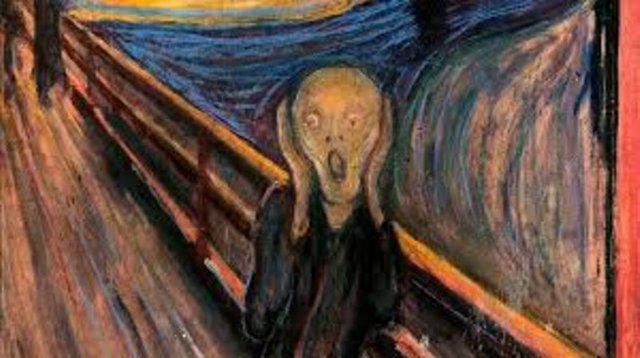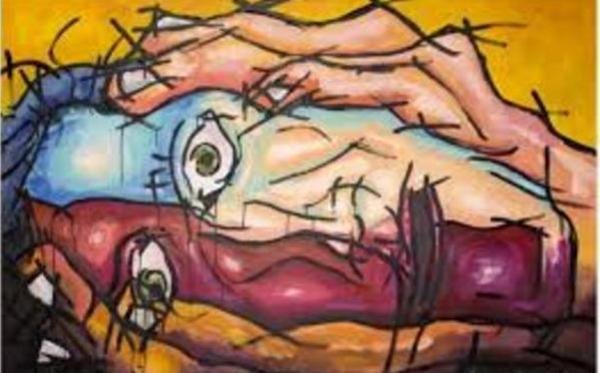ADSactly Literature: The Problem With Desires...


Hello, @adsactly's friends.
Let's exercise quickly: think of a desire you've had recently. Do you remember your degree of expectation? Did you get what you wanted? And if it didn't, how did you feel? It would seem that when we long for something we face that problem: we only admit to one result and if it doesn't happen, we experience it as a tragedy. In other words, the problem is not when we want something, but when what we want can do us harm, when what we want becomes our prison, a way of being prisoners in oneself. An obsession is a style of thinking in which the person is trapped in a fixed idea that he needs to achieve, to obtain, to do, to achieve to feel good.

On this subject, there is a very famous story entitled La valla (The Fence) by Venezuelan writer Eduardo Liendo. This story, written in the first person, tells the story of an inmate whose only desire is to jump the prison fence in order to escape and be free. This short story, with two important characters, the narrator who is the inmate and the prison guard nicknamed El puma is a perfect example to talk about obsessions.
From the beginning of the story, the narrator tells us how jumping the fence becomes an obsession for him:
From the afternoon I was suspended from incommunicado detention and left the dungeon to receive a little sunshine and a salty breeze in the courtyard, the fence acquired its dimension of challenge. When I returned to the dungeon, the obsession with escape had already penetrated me. My heart was not resigned to endure the servitude of time at a standstill.

The idea of escaping, and therefore of jumping the fence, becomes a challenge for the inmate, who sees in this action the only possible way to be free. So he thinks about the manoeuvres he must perform to achieve his mission:
Every time I went out into the courtyard during that evening hour, my intention was to try to specify which could be the most vulnerable point of the fence, according to the placement of the guard (the puma) and the most propitious moment to jump it. It was a move that required three elements to be perfect: ingenuity, speed and testicles.
But as the narrator mentions it well, his desire had an obstacle: The puma guarded the metal fence and was attentive to any escape:
Between my intention to escape (and surely that of other companions who walked thoughtfully through the courtyard) and its happy consummation, stood the hard and attentive gaze of the puma who always kept the submachine gun without an insurer. He was a man in whom one could easily appreciate the fierceness and speed of decision.

Faced with this difficulty and impediment, the inmate's life takes place inside the prison, without being able to make his wish come true. Thus, five years go by in which the prisoner behaves well and is released. Outside, our narrator and ex-con tries to lead a normal life, but the idea of jumping the fence pursues him, has become his obsession. So he goes back to jail and befriends El Puma. It is he who confesses his desire and asks him to allow him to jump over the obstacle.
The guard agrees to his request, but we are surprised at the unexpected end:
When we entered the courtyard, his hand rested affectionately on my shoulder. Then he placed himself in his usual place of surveillance, while I (exactly as I had thought for years) climbed the metal fence and jumped to the other side of time. As I fell, I felt a sudden liberation. I turned to say goodbye, and I barely had time to see the terrible look of the puma pointing the gun at me.
-I'm sorry," he said before he fired, "I also waited a long time for this opportunity.

In an unpredictable or predictable way this end is offered to us: just as for the inmate jumping over the fence had become an obsession or desire; for the guard, it had also become an aspiration to shoot and kill the one who escaped from prison, so he shoots and kills the man. In this way we can specify that the problem of desires is when they become obsessions.
There are ideas that dawn in your head and spend the day spinning around in it. Those ideas that you can't put aside, forget or ignore can become a problem. Obsessions are quite common nowadays and especially in adults, because I believe that children do not suffer from this evil.
As I asked at the beginning of this post: Who hasn't on occasion felt "trapped" by some thought that torments him, sometimes absurdly and sometimes justifiably? The detail is when these insistent thoughts become a problem, generating a lot of anxiety and even the trigger of depressions. We must know when a thought hurts us and when we must cancel it or pull it out at the root. We cannot feed our monsters.
I hope you have appreciated this post. I remind you that you can vote for @adsactly as a witness and join our server in discord. Until the next smile. ;)

BIBLIOGRAPHICAL REFERENCE
http://ficcionbreve.org/la-valla-de-eduardo-liendo/
Written by: @nancybriti
Click the coin below to join our Discord Server
)
I guess that depending on the desired thing the zest with which we purpuit may or may not be prejudicial.
There is a phrase I always remember from one of Chaucer's tales:
radix malorum est cupiditas
Greed as the root of all evil. Some of our desires are associated or rooted in money or power. Those can be very dangerous if pursuit as ends in themselves.
In the case of freedom, I guess tat obsession may be a good one, one worth dying for. But even freedom fighters give up to avoid frustration, depression, and even madness. I think that happened to us in Venezuela. The smartest ones left as soon as Chavez won in 1998. They forsaw everything.
Then, came the early quitters, those who confirmed their suspicious and had the means and interests to leave early before their interest were at risk. They also anticipated that this was a lost battle.
Then came the massive wave of quasi-middle class/professionals. Those did their fair share of fighting, but after 10, 15 years losing battles, health and friends and facing the inminence of losing their very lives, there was nothing to get obsessed about anymore.
Now the rest of us, those who could not leave on time, are obsessed with leaving or seeing the tyrant fall (the latter seems impossible). That's a conflicting desire, one that can kill you too.
I think you read my thought, @hlezama. Leaving the country is an idea that can be found in all the heads of Venezuelans, the detail is in the real possibilities of leaving. I believe that desires, if there are no real possibilities or opportunities for them to come true, can do harm. There are battles that should not be fought, especially for our peace of mind. Greetings
I believe that you formulate with simplicity and lucidity a central problem of human life. No one can escape desires; they constitute us psychically and corporally: As you well maintain, the problem is when they become obsessions and, consequently, dominate us. The ancient sages had it very much in mind, and from there arose those thoughts such as stoicism, Buddhism, and practices such as yoga and zen, which seek to lead desire and mind. Surely, we do not have that vocation...
I believe that, without trying to give any solution, in part the question is to pause to meditate a little on what drives us, and weigh it in our lives, confronting it with realities. It will always be a difficult and perhaps unsatisfactory task.
Thank you for your thoughtful and illustrative post, @nancybriti.
As you well say, reaching a state where you can be above desires and impulses requires a strong and constant spiritual practice. I admire the people who have done it! Thank you for your comment, @josemalavem.
Great story you shared there, @nancybriti! I loved it!
I agree with your point of view. Sometimes even legitimate desires can become harmful and, on the other hand, I have come to believe many things happen or don't happen for a reason, even if we are unable to understand it at the time. Obsessing over soemthing then becomes pointless...
That doesn't mean I'll stop wishing for cryptos to moon in the near future! :)
I support that wish fervently! I believe I am pray God and the virgin of crypto coins. LOL. A hug, @ladyrebecca.
Hola adsactly,
Tu post ha sido seleccionado por el bot de @provenezuela, te hemos dado un voto en apoyo a los autores venezolanos!
Gracias por ser parte de nuestra comunidad!
Thank you for your support!